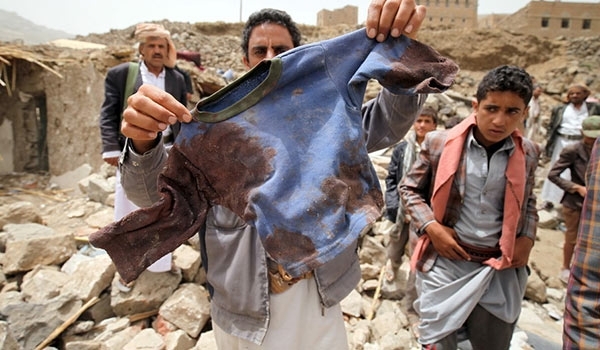Muslim faced zionist Saudi regime’s and Allies’ enemy is YEMEN not zionist Israel: At Least 180 Children Killed in Saudi-Led War on Yemen

The incessant attacks on Yemeni soil by Saudi Arabia and its allies have led to the death of a large number of civilians, including 180 children, media reports said.
The Riyadh-led coalition’s onslaughts on Yemen are underway as the country’s hospitals are facing a desperate shortage of medical supplies, according to the report, the Islam Times reported.
In the meantime, the Red Cross has warned of a “catastrophic” situation as shelling in Yemen intensified.
Saudi Arabia has been striking Yemen for 16 days now to restore power to fugitive president Mansour Hadi, a close ally of Riyadh. The Saudi-led aggression has so far killed nearly 1000 Yemenis, including hundreds of women and children.
Hadi stepped down in January and refused to reconsider the decision despite calls by Ansarullah revolutionaries of the Houthi movement.
Despite Riyadh’s claims that it is bombing the positions of the Ansarullah fighters, Saudi warplanes are flattening residential areas and civilian infrastructures.
Five Persian Gulf States — Saudi Arabia, the United Arab Emirates (UAE), Bahrain, Qatar and Kuwait — and Egypt that are also assisted by Israel and backed by the US declared war on Yemen in a joint statement issued on March 26.
US President Barack Obama authorized the provision of logistical and intelligence support to the military operations, National Security Council Spokesperson Bernadette Meehan said late on March 25.
She added that while US forces were not taking direct military action in Yemen, Washington was establishing a Joint Planning Cell with Saudi Arabia to coordinate US military and intelligence support.







